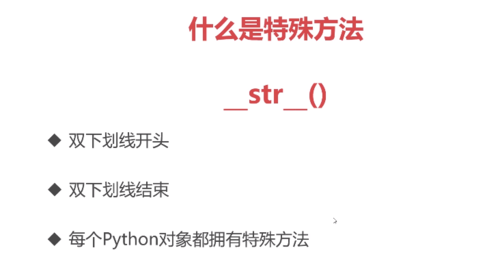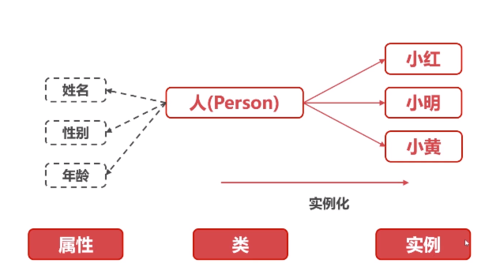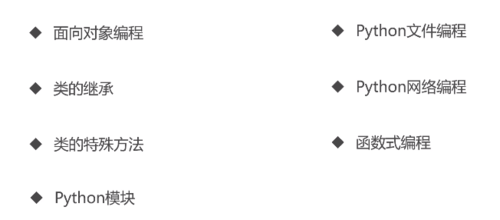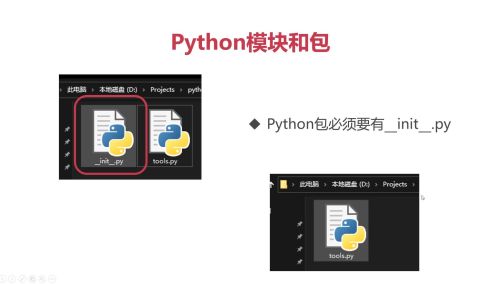-
什么是特殊方法
 查看全部
查看全部 -
在定义继承类的时候,有几点是需要注意的:
class Student()定义的时候,需要在括号内写明继承的类Person
在__init__()方法,需要调用super(Student, self).__init__(name, gender),来初始化从父类继承过来的属性
查看全部 -
文件对象还提供seek()方法,可以移动文件的游标位置,它接受一个参数,表示文件的位置,0:文件首部,1:当前位置,2:文件尾部,通过seek()可以把文件游标移动到文件首部但不删除文件的内容。
查看全部 -
#有时间回来看看
class Person1(object):
country ='china'
__language ="Chinese"
def __init__(self,name,age):
self.name = name
self.__age = age
def getAge(self):
return self.__age
def setAge(self,age):
if age >100 or age <0:
print("age is not true")
else :
self.__age = age
def __str__(self):
info = "name :"+self.name +",age(scret):"+str(self.__age)
return info
stu1 = Person1("tom",18)
print("1",stu1.__str__())
stu1.name="tom_2"
print("2",stu1.__str__())
#print(stu1.__age)
print("3",id(stu1.getAge()))
stu1.__age = 19
print(stu1.__age)
print("4",id(stu1.__age))
print("5",stu1.__str__())
stu1.setAge(22)
print("6",stu1.__str__())
查看全部 -
和实例方法不同的是,这里有两点需要特别注意:
类方法需要使用@classmethod来标记为类方法,否则定义的还是实例方法
类方法的第一个参数将传入类本身,通常将参数名命名为 cls,上面的 cls.__localtion 实际上相当于Animal.__localtion。
查看全部 -
私有属性是以双下划线'__'开头的属性
查看全部 -
class Fib(object):
def __init__(self,num):
self.res = []
self.num = num
a=0
b=1
for x in range(num):
self.res.append(a)
# a,b = b,a+b
a = b
b = a+b
def __str__(self):
return str(self.res)
def __len__ (self):
return self.num
f = Fib(10)
print(f)
print (len(f))
查看全部 -
对象在程序中为类,类具有属性,通过实例化形成实例
 查看全部
查看全部 -
基础课程需要复习的内容
Set容器需要继续复习
需要继续学习的内容
面向对象编程
类的继承
类的特殊方法
Python文件编程
Python网络编程
函数式编程
Python模块

查看全部 -
Python继承类
在定义继承类的时候,有几点是需要注意的:
class Student()定义的时候,需要在括号内写明继承的类Person
在__init__()方法,需要调用super(Student, self).__init__(name, gender),来初始化从父类继承过来的属性
查看全部 -
Python包必须要有__init__.py

 查看全部
查看全部 -
python模块和包
 查看全部
查看全部 -
import time
def performance(f):
def fn(*args, **kw):
t1 = time.time()
r = f(*args, **kw)
t2 = time.time()
print('call %s() in %fs' % (f.__name__, (t2 - t1)))
return r
return fn
@performance
def factorial(n):
return reduce(lambda x,y: x*y, range(1, n+1))
print(factorial(10))查看全部 -
def count():
fs = []
for i in range(1, 4):
def f(j):
def g():
return j*j
return g
r = f(i)
fs.append(r)
return fs
f1, f2, f3 = count()
print(f1(), f2(), f3())查看全部 -
在函数内部定义的函数无法被外部访问。
内层函数引用了外层函数的变量(参数也算变量),然后返回内层函数的情况,称为闭包(Closure)。
闭包的特点是返回的函数还引用了外层函数的局部变量,所以,要正确使用闭包,就要确保引用的局部变量在函数返回后不能变。
因此,返回函数不要引用任何循环变量,或者后续会发生变化的变量。
查看全部
举报










